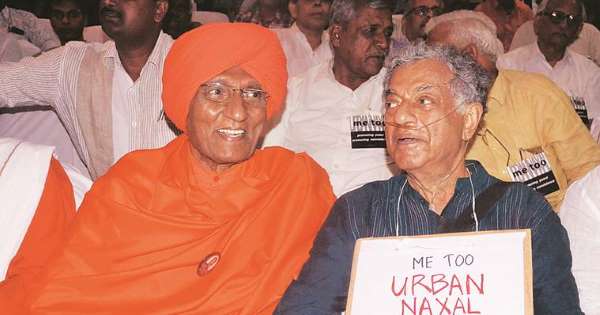Quick Reads
The one who declared, 'culture is ordinary': remembering Raymond Williams
This 31st August marks the birth centenary of Raymond Williams (1921-1988).

This 31st August marks the birth centenary of Raymond Williams (1921-1988) ─ was a famous cultural and literary theorist. It was in 2013, I read Raymond Williams’ essay ‘Culture is Ordinary.’ The photo-copy of ‘Culture is Ordinary’ was, waiting to be read and owned, lying on the desk of the Department of English, SPPU. When I saw it, I sought Professor Aniket Jaaware’s permission; and in his typical style, he said, “well, read it.”
Raymond Williams strongly insisted upon viewing culture as ordinary. The culture is in every society and mind. Something of everyday and therefore, democratic. Something which is constantly being made and re-made. In 2013, this was more than enough for me.
Raymond Williams was from Welsh─ a village man. At the age of 16, he read The Communist Manifesto. His father was a railway worker. In his border village, the railway workers categorically used to support the labour whereas the farmers used to support the liberal. In the novel ‘Border Country’, one can find the finest descriptions of his village. The novel is situated in the South Wales village that borders England.
Raymond Williams was also a leading face of the New Left movement.
In the late 1940s, he quit university studies and joined the British army. He freed many people from Nazi Concentration Camps. The freed camps were used to detain the Schutzstaffel officers. Schutzstaffel, abbreviated as SS─ were the party workers, was the para-military force of the Nazi party. The bombing over the cities trembled the sensitive man in him. It was only after the end of World War II he resumed his studies. He was relatively aware of the political and economic analysis but it was in Cambridge he first encountered the cultural and literary argument.
Raymond Williams was also a leading face of the New Left movement. Many a time the people misunderstand the New Left movement. This is not a reaction to Marxism. The New Left does not oppose Marxist principles. In fact, the New Left has widened the scope of activism. The New Left largely focused on cultural studies, feministic discourse, gender studies, LGBT, and civil and political rights.
Similarly, in 1993, Gail Omvedt, in her critical book entitled “Reinventing Revolution: New Social Movements in India,” talked about the emerging social movements in India. Sadly, Gail Omvedt is not with us. She passed away on 25th August 2021. Gail Omvedt’s ‘Reinventing Revolution’ can be seen as a part of the New Left movement. Gail’s work ushered or to use her own word, accurately, reinvented the new social movements in India.
Raymond Williams was greatly inspired by Antonio Gramsci’s works, especially his concept of hegemony. And the work of Raymond Williams inspired Terry Eagleton and several other cultural theorists like Stuart Hall. Once Terry Eagleton said that Raymond Williams was and was not a Marxist. On the university campus, I have several friends who fluid their political identities accordingly. Let them. Later in Marxism and Literature (1977), Raymond Williams finally identified himself as a Marxist.
Raymond Williams critically reassessed the British tradition of cultural thought. He particularly deferred from Matthew Arnold, T.S Eliot and F.R Leavis.
Raymond Williams critically reassessed the British tradition of cultural thought. He particularly deferred from Matthew Arnold, T.S Eliot and F.R Leavis. The book Culture and Society 1780-1950 was first published in 1958, in which he assessed Matthew Arnold’s ‘Culture and Anarchy,’ Eliot’s ‘Notes Towards the Definition of Culture’ and several others’ works. His books offered a critique and argument. His work necessarily reviewed earlier positions─ both Marxist and Non-Marxist.
In ‘Culture and Society,’ Raymond Williams defined culture as ‘a whole way of life’ and it has ‘the forms of signification.’ The forms of signification are books, films, TV and so on. It circulates within a society. That is something made and lived. He was of thought in any given society, there exists more than one single culture. The cultures, over the period, have c0-lived. There is constant interaction among these different cultures. This idea, in the Indian scenario, is more like an idea of India.
The earlier culture was about the growth and tending of crops and animals. By extension, it was about the growth and tending of human faculties. You can yourself look at the word ‘agriculture.’ One can never understand the culture if he/she neglects what had happened to society and economy in the past. Raymond Williams extensively discussed the significance of society and economy in relation to culture.
The word ‘society’, if you think, can take a few adjectives. Let me randomly give you some adjectives to ponder over. Very often we hear the phrases like ‘civil society,’ ‘bourgeois society,’ and ‘gated society.’ The word ‘civil’ is an adjective─ suggests─ orderly, educated and polite, and thus, positive.
However, the word ‘gated’ is not a positive gesture. These adjectives necessarily have their impacts on individuals, every day. You may currently be staying in a dash-dash society that has its ‘cultural codes.’ Some of its codes the democratic state might not approve but it still has. And the ‘gated society’ often hinders ‘remaking’ and ‘ordinariness’ of culture.
In Towards 2000 (1983) he gave a foresighted analysis of ‘nomad capitalism’ and dubbed as ‘Plan X.’ It is, the political and economic project of social management, now commonly addressed as Neoliberalism. He viewed it as a new avatar of capitalism that would control the future. He forecasted that the movements like feminism, the environment could provide an alternative.
In an article, short as this, I cannot offer a detailed view, but on this occasion, have this glimpse.
Satish Gore Teaches English Literature at SGK College, Loni-Kalbhor, Pune.





